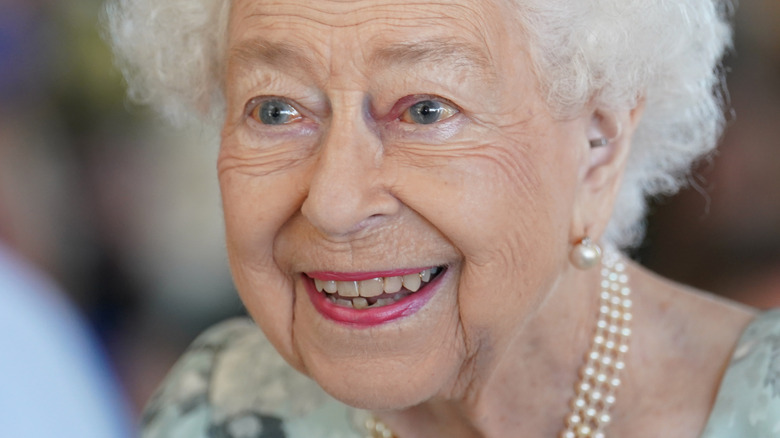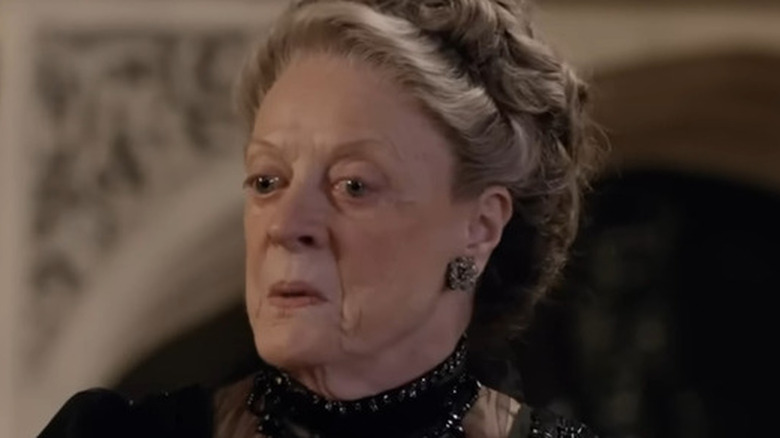Queen Elizabeth II's Favorite Part Of Downton Abbey Makes Too Much Sense
As reported by the Royal Family's official Twitter account earlier today, Queen Elizabeth II has passed away at age 96. Among many statements, readers have learned that she died peacefully at Balmoral after reigning for 70 years (via The Washington Post). Her life and achievements are grand and shall not be forgotten, many of which are detailed by the BBC. Here, however, we seek comfort in a lighter story. So, for anyone wanting a smile concerning Queen Elizabeth II, we've got you.
The late royal was fond of the simple things in life, such as gardening and stamp collecting (via British Heritage) and, as it turned out, television. After all, who can't appreciate a good story? Of the many options out there, it's perhaps both on the nose and appropriate that she appeared to enjoy the ITV production, "Downton Abbey," a dramatic series about British aristocracy. However entertaining the series is, it would seem she also had a secondary motive behind watching the show.
Queen Elizabeth II searched for historical inaccuracies in Downton Abbey
According to an interview Brian Hoey, author of "At Home With The Queen," did with People in 2015, Queen Elizabeth II loved catching historical inaccuracies in "Downton Abbey." Hoey said, "She loves to pick out the mistakes. They do tend to get it right."
At least one example of a historical inaccuracy she found was how some of the pinned medals were from the wrong world war. Hoey explained, "The Queen did notice on one episode that there was a young so-called British officer wearing medals which had not been awarded when he was supposed to be alive. He was fighting in the First World War, and the medals on his chest did not come in until the Second World War."
While never alone in the joy of picking out inaccuracies (i.e., "Game of Thrones" major Starbucks blunder), there's something comforting about the image of the world's favorite royal watching Dame Maggie Smith, all the while muttering, "yes, yes, eh, ... no."

